- Home
- / CL Answers
- / 10 Supplements That May Help Reduce Nighttime Urination (And 5 That May Not)
www.consumerlab.com/answers/supplements-for-nighttime-urination/nocturia/
Save to favorites
This feature is restricted to active members.
Join now to save favorites and get all member benefits, including over 1,400 reviews.
Join NowAlready a member? Sign in here.

Our Members Asked:
10 Supplements That May Help Reduce Nighttime Urination (And 5 That May Not)
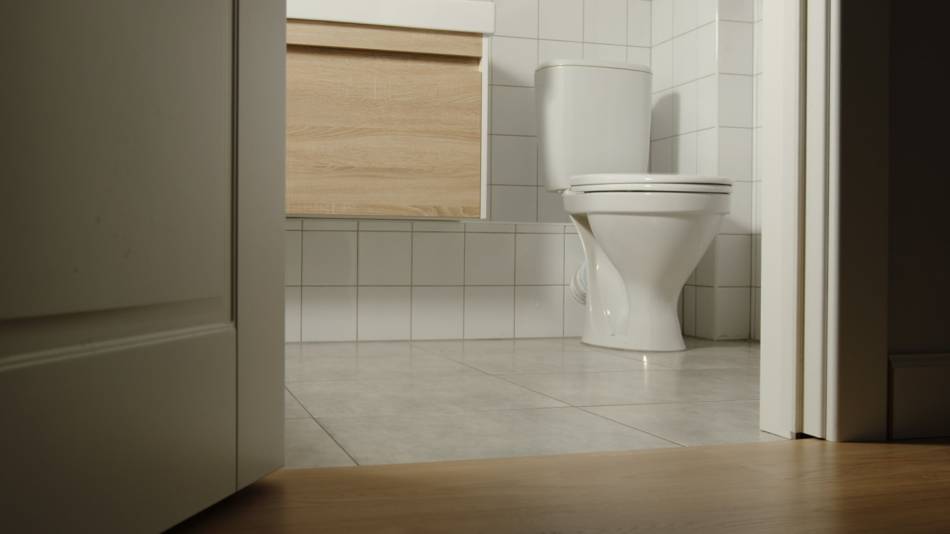
Answer:
Needing to wake up more than once during the night to urinate, a condition known as nocturia, commonly occurs with age, affecting about 69% of men and 76% of women ages 40 and older (Weiss, Rev Urol 2012). Common causes of nocturia are urinary tract infections (UTIs), overactive bladder (OAB) and benign prostate hyperplasia (BPH), and there are many others. It’s important to talk to your doctor if you’re experiencing excessive nighttime urination to ensure that the correct cause of the condition is identified.
Depending on the cause of nocturia, evidence from small clinical trials suggest that certain supplements may be beneficial, while some others might not help.
Sign in as a member for details about the clinical evidence, dosage, and safety of supplements promoted for nighttime urination for men and women, including beta sitosterol, cranberry supplements, magnesium, pumpkin seed oil, saw palmetto, vitamin D and others.
In addition the results of its expert testing, ConsumerLab uses only high-quality, evidence based, information sources. These sources include peer-reviewed studies and information from agencies such as the FDA and USDA, and the National Academy of Medicine. On evolving topics, studies from pre-print journals may be sourced. All of our content is reviewed by medical doctors and doctoral-level experts in pharmacology, toxicology, and chemistry. We continually update and medically review our information to keep our content trustworthy, accurate, and reliable. The following sources are referenced in this article:
- Cameron, Neurourol Urodyn 2024
- Fujimoto, Int J Clin Pharmacol Ther 2014
- George, Clin Exp Optom 2015
- Gordon, Br J Ob Gyn 1998
- Kujubu, Geriatric Nephrology Curriculum 2009
- Liu, Medicine (Baltimore
- Schoendorfer, BMC Complement Altern Med 2018
- Shi, Evid Based Complement Alternat Med 2019
- Tomohiro, Eur Urol Suppl 2017
- Weiss, Rev Urol 2012
Join today to unlock all member benefits including full access to all CL Answers and over 1,400 reviews.
Join NowAlready a member? Sign In Here.
Join now at www.consumerlab.com/join/
 54 Comments
54 Comments
Join the conversation
Submit your comment
This feature is restricted to active members.
Join now to add comments and get all member benefits, including over 1,400 reviews.
Join NowAlready a member? Sign in here.

Agree to Comment Terms
Please abide by the following:
- If you make a statement of fact, such as whether a type of treatment does or does not work, state your basis -- such as personal experience or a published study.
- If you make a positive or negative comment about a product, note whether or not you have a financial interest in the product or in a competing product.
- Please be respectful in your tone.
- Please do not submit any type of HTML markup or scripting as it will not be accepted, nor will posts that exceed 2,500 characters.
For your privacy, only your first name (from your account) followed by a random number will appear with your comment. Your last name and email address will not be displayed.
Your comment has been submitted
We will review your comment before it is posted.

Latest Research Updates (Clinical Updates)
Magnesium to Reduce Urinary Frequency?
October 21, 2024
Does taking magnesium reduce the number of times a person with urinary frequency needs to urinate? Find out in the What It Does section of our Magnesium Supplements Review, which includes our Top Picks among magnesium supplements.
Also see: 10 Supplements That May Help Reduce Nighttime Urination (And 5 That May Not)
Overactive Bladder & Supplements
July 18, 2024
Nighttime Urination: Pumpkin Seed?
April 25, 2023
Can supplementing with pumpkin seed reduce the need to urinate at night among people with BPH (benign prostatic hyperplasia) or OAB (overactive bladder)? Get the details in the Pumpkin Seed section of our article about BPH. Also learn about other approaches in our article about supplements for nighttime urination.
Corn Silk for Nighttime Urination?
April 21, 2023
Does corn silk tea help reduce nighttime urination? Find out what research suggests in our article about supplements for nighttime urination.
Do Statins Cause Nighttime Urination?
October 14, 2022
Find out if cholesterol-lowering statin drugs may increase the need to urinate at night and if this is more likely with certain statins. We’ve added this information to our article: 9 Supplements That May Help Reduce Nighttime Urination (And 4 That Might Not Help)
Urox for Nighttime Urination?
October 07, 2022
Does Urox reduce nighttime urination? Find out if Urox has been shown to work and what it contains in our article: Supplements for Reducing Nighttime Urination.
Nighttime Urination & Supplements
October 04, 2022
We answered the following additional questions relating to our article about Supplements for Reducing Nighttime Urination:
- Can sleep apnea or other conditions cause nighttime urination?
- What dietary factors cause nighttime urination?
- Does taking valerian or pine bark extract (Pycnogenol) reduce nighttime urination?
Related CL Answers (4)

Related Content
Ratings of ConsumerLab

The "Updated" date indicates when new information was most recently added to this article. In the full article, the newest information is highlighted in yellow.
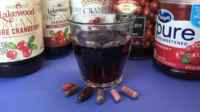
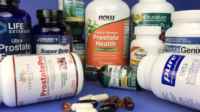
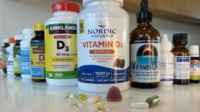
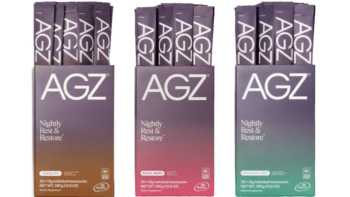
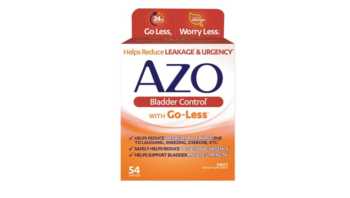
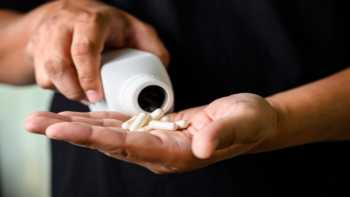
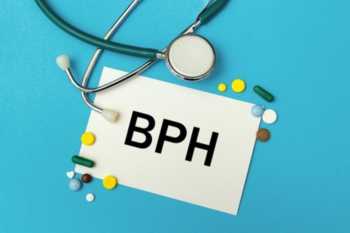
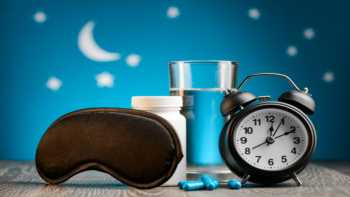






Geoffrey22621
April 25, 2025I have gotten some relief from BPH symptoms by taking 10 mg/day of lycopene.
Reply to this post…
Stephen22618
April 25, 2025A few years ago I started taking Pumpkin seed oil for hair loss, not for night time urination. About 8 months ago I stopped taking Pumpkin seed oil and shortly after, I started getting up a night to urinate. I read that Pumpkin seed oil might help with night time urination, so I started taking it again. After the first week, the night time urination's went away and I no longer have to get up.
LYDIA22641
April 28, 2025What brand?
Reply to this post…
Ronald22613
April 25, 2025Three months ago, I began taking ProstarRelief. Beta-sitosterol is one of many ingredients. The advertisement suggested it would shrink the prostate. Miracles of miracles, it has. The product has vastly improved my quality of life. I have no financial interest in this product.
Reply to this post…
steven22227
March 11, 2025As mentioned in the first sentence, nocturia commonly occurs with age. Desmopressin is a synthetic analog of ADH and is sometimes prescribed to treat nocturia. It can help reduce nighttime urine production. However, it's important to use it with caution, especially in older adults, due to the risk of hyponatremia (low sodium levels). For me at 76, I'm getting up once or twice during the night and I take melatonin before bed and when I get up during the night. Melatonin also decreases with age. If my nocturia gets worse I'll look at desmopressin.
Reply to this post…
Corra21498
December 26, 2024Are any of these supplements for an over-active bladder connected to memory loss/cognitive decline. A prescription for over-active bladder a doctor prescribed me is connected to cognitive decline and I'm not going to take it.
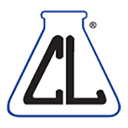 ConsumerLab.com
ConsumerLab.com
June 27, 2025You can learn more about the possible side effects of the supplements discussed above by clicking on the links and reviewing the Concerns and Cautions sections of the related Reviews.
Reply to this post…
majid20151
July 21, 2024Retraining my bladder has been very helpful for me. I try not to make frequent bathroom visits during the day. Many times, we go to bathroom for partially full bladder because of convenience.
RV
November 20, 2024I'm a 75 y/o woman who used to wake up about every 2 hours during sleep to go to the bathroom. Instead using prescription meds which has severe side effects, I retrained my bladder by noting the times I go to the bathroom on my phone. I read that if one goes to the bathroom 8xs or more during a 24 hour period one has a problem. I also switched to Mirtazapine 3.75 for insomnia & 1mg of Melatonin. Now I go to the bathroom only 1x night, about 6-7xs during 24 hour pd., but I do wake up a few times but I return to sleep easily. So I figured out the frequent urination was due to anxiety underlying my insomnia. I also take Mat Pilates which works the pelvic floor, important for bladder control for both sexes!
Reply to this post…
Dewey20129
July 19, 2024Varuna (Crateva nurvala) worked for me. I also started taking pumpkin seed oil. I'm down to once at night instead of four times a night.
 ConsumerLab.com
ConsumerLab.com
July 23, 2024Thank you for sharing your experience! As noted in our article, there is limited evidence that a product containing Crataeva nurvala can reduce nighttime urination in people with overactive bladder ( https://www.consumerlab.com/answers/supplements-for-nighttime-urination/nocturia/#urox), and a preliminary study suggests that pumpkin seed oil may improve urinary symptoms in men with BPH ( https://www.consumerlab.com/answers/supplements-for-nighttime-urination/nocturia/#pumpkin-seed).
Reply to this post…
LYNN20119
July 19, 2024This study about Unox shows efficacy. < https://www.ncbi.nlm.nih.gov/pmc/articles/PMC5793427/ > However, the possible effects of Crataeva lindera (horsetail) extract include increased urination and low potassium, and, with long-term use, vitamin B1 deficiency. How can we reconcile opposing effects? Low electrolyte levels can be expected with a diuretic like horsetail. That can lead to muscle cramps. I'm female, 76, and have both stress incontinence and get up at least 3 times a night to urinate, so I'm looking for solutions besides surgery.
 ConsumerLab.com
ConsumerLab.com
July 23, 2024Thank you for your comment! The study that we cite about Urox did not find Urox to be associated with any side effects, although the researchers did not appear to measure electrolyte levels.
Reply to this post…
Jo20115
July 19, 2024I was getting up to urinate three times a night, and it was voluminous -- much more than I was urinating in the daytime. At the beginning of this article, sleep apnea was listed as a possible cause of nocturia. I was diagnosed with severe sleep apnea, and the very first night I used a CPAP I did not need to get up once. Since then, I've learned that nocturia can be a symptom of sleep apnea just as feeling sleepy in the daytime. The CPAP has helped me in numerous other ways (more energy, better decision making, enhanced cognition).
Reply to this post…
Harrison20103
July 19, 2024Gemtesa (vibegron) 75 mgm daily extremely effective in urgency from bladder spasms and nocturia.
 ConsumerLab.com
ConsumerLab.com
July 22, 2024Be aware this is a prescription medication.
Reply to this post…
Lida19949
July 08, 2024Is pumpkin seed oil as effective for women as it is for men in controlling nocturia?
 ConsumerLab.com
ConsumerLab.com
October 30, 2024Thank you for your inquiry. Unfortunately, there seems to be a lack of substantial evidence to address your question. The majority of studies assessing pumpkin seed oil for nocturia have been conducted solely with male participants. A study investigating pumpkin seed oil for overactive bladder did include both genders, but the significance of its findings is diminished by the absence of a control group. For more information on these studies, please refer to our Prostate Supplements Review: https://www.consumerlab.com/reviews/prostate-supplements-beta-sitosterol-phytosterols-saw-palmetto/sawpalmetto/#pumpkin-seed
Reply to this post…
Glenn17747
May 09, 2023Woman here. Started taking glycine a few months ago to help with sleeping. I've limited myself to 1 gram for now. I have definitely noticed that my nighttime urination frequency is much less. I used to use the bathroom maybe 3x a night (I never counted this but that's my guess); I'm now using it about 1x a night. I feel less urgency to go when I've woken up between sleep cycles, so feel more comfortable falling back asleep even knowing/feeling that there's some urine in my bladder.
Casper
June 25, 2023I'm finding the same results re glycine, 1 pill, 1 gm. It's only been 5 nights, but I'm going 5-6 hours before getting up to use the bathroom! I used to get up every 2-3 hours, which was 3-4 times a night to potty. So far on glycine, it's down to 1-2 times. Hope this lasts!
Claudia20184
July 23, 2024Thank you for the post. I will try it.
Reply to this post…
Lorraine17745
May 08, 2023I have been using NOW pumpkin seed oil, but a reviewer on Amazon complained about mold in the capsules (black spots). I started looking at the capsules I had and sure enough there was a blackish substance in it. Has Consumer Lab looked in to what is in the capsule that looks like mold? I have stopped taking them because they are not clear. I have no affiliation or interest in any particular brand of pumpkin see oil.
 ConsumerLab.com
ConsumerLab.com
May 11, 2023We have not tested the product that you mention but, as it is cold pressed from pumpkin seed, it could just be some material from the seed. On the NOW website page for this product they write: "Naturally occurring dark particulates may be visible in the pumpkin seed oil but do not affect the quality of the product.”
Cynthia18953
March 13, 2024There was a reviewer on Amazon who commented on this brand and the complaints about it. He/she said that it's NOT A PROBLEM and is NOTHING TO WORRY ABOUT. NOW products are reported to be good by the users of them.
Reply to this post…
Nick17742
April 26, 2023I have been taking 2000 mg of pumpkin seed oil for the past month or two. I have found that my urinary function has improved hugely and is not as good as it was 20 years ago. Sexual function has also improved dramatically.
 ConsumerLab.com
ConsumerLab.com
April 30, 2023Hi Nick, we've added information about pumpkin seed oil in the answer above. You can also find more information about the evidence for pumpkin seed oil, including dosage, in our Prostate Supplements Review https://www.consumerlab.com/reviews/prostate-supplements-beta-sitosterol-phytosterols-saw-palmetto/sawpalmetto/#pumpkin-seed.
daniel17743
September 24, 2023how is it now? do you still take it regularly? which brand?
Reply to this post…
Jimmy17739
April 21, 2023I suffered from nocturia for many years and tried every supplement that Consumer Labs mentioned. None of these really helped. Someone suggested that I might benefit from pumpkin seed oil. I tried the capsules and they did help somewhat, but I found out I was not at the therapeutic dosage. I starting taking a tablespoon of pumpkin seed oil at night before bed. Wow, what a difference. Take a brand of Styrian pumpkin seed oil.
 ConsumerLab.com
ConsumerLab.com
April 28, 2023Thanks for sharing your experience. We've added information to our article regarding the use of pumpkin seed oil for urinary symptoms of BPH ( https://www.consumerlab.com/answers/supplements-for-nighttime-urination/nocturia/#pumpkin-seed) and overactive bladder ( https://www.consumerlab.com/answers/supplements-for-nighttime-urination/nocturia/#pumpkin-seed-oab).
Reply to this post…
janice17737
April 17, 2023what about cornsilk? it is reputed to help with nocturia, I found it helpful, as well as glycine, which is briefly mentioned above. also, a study does support glycine as a remedy. yarrow has been used for centuries, too,
 ConsumerLab.com
ConsumerLab.com
April 21, 2023We've added information about corn silk to the following section of our article: https://www.consumerlab.com/answers/supplements-for-nighttime-urination/nocturia/#corn-silk
Mark20171
July 23, 2024I've been prescribed a drug, desmopressin which has been very effective in assuring I get a full night's sleep. It cause greater sweating, but other than that a regular, REM sleep is highly rewarding.
Reply to this post…
Lloyd17736
February 17, 2023Im thinking about Axonic but i had rather use supplement to reduce frequent peeing day and night
Reply to this post…
StatinStories.com
October 10, 2022Did anyone else start having nocturia problems after being put on a statin drug?
Maria17729
October 13, 2022Yes! I had horrible nocturia, bladder and urethral pain and inflammation keeping me most of the night after starting statins. I started with atorvastatin 20mg, tried pravastatin 10mg but nothing changed until I went off statins and the problem stopped. I now take ezetimbe and 5mg rosuvastatin every other day and have no issues.
Reply to this post…
James17720
October 10, 20222 grams of pumpkin seed oil extract a day has helped me. 1st gel cap in the morning before eating and 2nd 1 gram gel cap with breakfast. I use the Now product.
Reply to this post…
Grant17716
October 08, 2022I was having nocturia four times a night and started on Beta-Sitosterol and it did help ,maybe down to two times a night. I was taking Cranberry capsules three times a day but recently I switched to Cranberry softgels and it had immediate effect. Its been no times a night or just once after 7 hrs .
I take the CranRich Cranberry 500mg softgel and NOW 500mg Beta-Sitosterol softgel.
Arthur17718
November 25, 2022Are you taking 1 each of the CranRich and NOW each day (or night)?
Reply to this post…
Roger17714
October 03, 2022I take 60 mg of beta-sitosterol twice daily and usually get up once per night. Sometimes zero. Previously it was two to three.
Daniel17715
October 04, 2022Which brand are you using?
Reply to this post…
Henry17712
October 02, 2022I have significant BPH (75 cm postrate) and other symptoms but zero nocturia. For other things--like burning, hesitancy, slow riveretc.--I have found quercetin to be the only useful supplement. Point being, we each have to find what works for us personally, beyond what large studies show.
Reply to this post…
James17707
October 02, 2022None of these so-called remedies and others have helped my nocturia.
Janet17711
October 07, 2022My husband & I have discovered that taking 400 mg of ibuprofen at bedtime decreases our need to urinate during the night, and we keep much better!
 ConsumerLab.com
ConsumerLab.com
October 09, 2022Although there is some evidence that ibuprofen and other non-steroidal anti-inflammatory drugs (NSAIDs) may help to reduce nocturia (https://onlinelibrary.wiley.com/doi/10.1002/nau.23910; https://pubmed.ncbi.nlm.nih.gov/16455186/), the potential adverse effects of taking them regularly may outweight the benefit for many people.
Chris17709
April 25, 2023I was taking ibuprofen multiple times a day and ended up getting stage 3 kidney disease, I stopped and my kidneys recovered after about 3 months. My doctor said not to take it again.
Claudia20185
July 23, 2024I am told that is unhealthy to take on a regular basis.
Christine21766
January 28, 2025Please be aware that Ibuprofen and other non-steroidal drugs slow down renal function. I would not recommend using these meds on a regular basis. I am a PA.
Reply to this post…
Betsy17702
September 30, 2022It’s been a few years now so I don’t recall the dosage, but taking valerian root before bed greatly reduced the number of times I woke up to urinate. I used it for only a week or two before the problem disappeared entirely.
Reply to this post…
Martha17699
September 30, 2022Frequent nighttime urination is also a symptom of sleep apnea. Now that I'm on CPAP therapy I no longer need to get up to the bathroom 5 times a night.
Paul17700
October 04, 2022I've had the same experiences!
Lorraine17701
February 21, 2023I also had the same experience, as well as using pumpkin seed oil.
Reply to this post…
Arnold17696
September 30, 2022beta-sitosterol reduced my wake up time from 8 to 1 or even zero, but then it caused constipation. I was taking 375 mg/day and it took over a week to get results.
Arnold17698
September 30, 2022I checked my records and found I had taken 375mg twice a day. At lunch and supper with meals.
 ConsumerLab.com
ConsumerLab.com
September 30, 2022As noted in the Concerns and Cautions section of our Prostate Supplements Review, constipation and other GI side effects have been reported in clinical research in a small percentage of men taking beta-sitosterol: https://www.consumerlab.com/reviews/prostate-supplements-beta-sitosterol-phytosterols-saw-palmetto/sawpalmetto/#cautions-betasitosterol
Reply to this post…